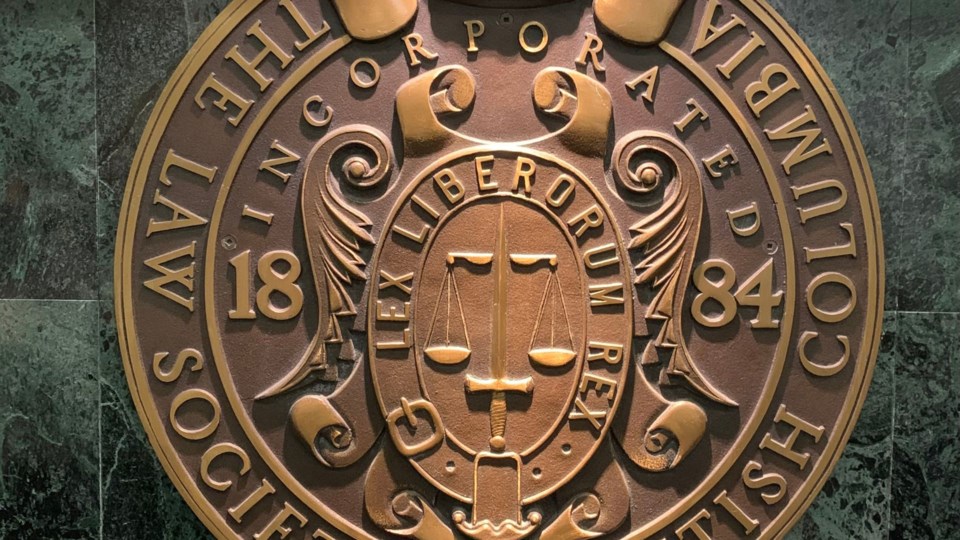B.C. lawyers have lost their bid to halt the provincial government from proceeding with transitional work for a new single legal regulator while they challenge its constitutionality.
On July 17, B.C. Supreme Court Justice J. Miriam Gropper denied the Law Society of BC and Trial Lawyers Association of BC (TLABC) an interim injunction against Bill 21 (the Legal Professions Act), pending the outcome of the constitutional challenge.
Gropper ruled the lawyers and their self-regulating organization had not proven the legislation has produced irreparable harm to the public interest in the administration of justice — a requirement for such an injunction.
The interim injunction application, according to the trial lawyers, was to restrain the government from furthering the processes created by legislation to end the society and lawyer self-regulation, thus “irreparably damaging the independence of the bar, and undermining the building blocks of the rule of law.”
The legislation creates a new single legal regulator called the Legal Professions of British Columbia (LPBC), which is to include lawyers, notaries and paralegals. The government’s stated objective is to streamline regulation and improve access to legal services while also imposing reforms prioritizing reconciliation with Indigenous peoples.
While the society and lawyers do not object to a new regulator itself, and Indigenous reconciliation in the legal community, they have objected to changes they claim will undermine control of the legal profession by lawyers and thus its independence — a result that would be unconstitutional by infringing on individual rights and unreasonable search and seizure.
At issue is the structure of the LPBC board appointments.
Bill 21, the trial lawyers submitted, “imposes a governance model on lawyers that makes them subject to regulation by a functional majority of non-lawyers, government appointees, and other governments, each of whom have pecuniary and other interests engaged in shaping the manner in which lawyers can, and cannot, act against them.”
Gropper noted that “at this time, only a few provisions of the act are currently in force. They prescribe a transitional planning process. The rest of Bill 21 is not in force.”
The transitional process requires a seven-person transitional board of which four members are appointed by the society’s board (benchers), one member is appointed by the directors of the Society of Notaries Public, one member is appointed by the BC Paralegal Association, and one member is appointed by the government.
The new transition board would then be responsible for “substantive provisions” of the LPBC, such as governance, CEO appointment, the establishment and participation of an Indigenous council, licensing and authority to practise and policies surrounding professional conduct, competence and discipline.
These provisions under the alleged unconstitutional regime would result in irreparable harm ahead of the trial, the lawyers argued.
But Gropper noted, the government “says that the substantive provisions, if they come into force, require the necessary transitional planning process to be complete, which the province anticipates will take 18-24 months.”
Furthermore, the government “submits that the transitional provisions do not impose any new obligations on lawyers. If the constitutional challenge succeeds and any constitutional problems with the act are incurable by amendment, some time and modest resources may have been spent developing rules that are not ultimately implemented.”
Gropper ultimately sided with the provincial government, noting the constitutional challenge will be heard within the transitional timeframe.
Gropper also took into consideration that issuing an interim injunction would imply that “the government action does not have the effect of promoting the public interest” and that “the law society and the trial lawyers have a superior understanding of the public interest and a greater role to play in protecting it.”
“I do not agree with either implication,” stated Gropper.
Gropper said while injunctions on legislation are rare she noted the society and lawyers could re-apply should the substantive provisions come into force earlier than expected.
Trial Lawyers Association of BC responds
Gropper noted that aside from the immediate issues around the transition, both the province and plaintiffs (society and lawyers) agree there is an issue to be tried, i.e. an alleged infringement on the bar.
But the issue is, to what extent is there an infringement?
Gropper noted the province submitted that “lawyers are not and have never been ‘free from influence or incursion by any source.’ Lawyers have always been subject to some kinds of influence by non-lawyers and external regulation, including from the law society, and the Truth and Reconciliation Commission.”
Furthermore, wrote Gropper, “The province argues that the act will not result in the state interference with anything that affects lawyers’ advice or advocacy. Any unwritten constitutional principle about the independence of the bar should be interpreted in a functional manner.”
As well, the province also noted the society “is not an association that advances lawyers’ interests but rather a statutory regulator.”
After the judgment, the association responded with a public statement on June 17.
The association claimed the court ruling “highlights that even the province itself has admitted in court that parts of the Legal Professions Act (2024) are potentially unconstitutional and may need to be amended.”
According to the ruling, what the province had stated about amendments, is that “the province can amend the act to conform with any constitutional problems that the court may find after a factual basis is established by the transitional planning process.”
Association president Michael Elliot stated the lawyers intend to press on with the constitutional challenge.
“TLABC remains ready to challenge the constitutionality of the act in the primary application, and committed to protecting the rights of individuals, enhance access to justice, and preserve the integrity and independence of the legal system. We will continue to advocate for an independent and self-regulated bar and judiciary and challenge any legislation, like this act, that threatens these principles,” stated Elliot.
Editor's note: This story was updated on July 18 with a statement from TLABC.

